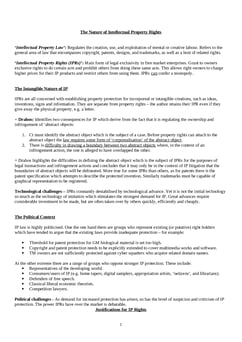Mirage Studios v Counter-Feat Clothing [1991] F.S.R. 145
Judgement for the case Mirage Studios v Counter-Feat Clothing
Table Of Contents
Claimant was a company set up to exploit marketing potential of ‘Teenage Mutant Ninja Turtles’.
Defendant asked for licence to use Turtles on their clothing, but was refused. Defendant then got an artist to draw his own version of humanoid turtles which similar to Claimant’s, which were then used on Claimant’s clothing.
Held
There is arguable case of passing off
-
Misrepresentation
Substantial number of buying public believe that where a cartoon character has been reproduced, this is as result of a licence.
-
Thus there is a misrepresentation by Defendant.
I.e. as substantial number of public will believe there is some connection between Defendant and Claimant.
-
Damage
Damage to Claimant is loss of chance to obtain royalties.
-
Such loss of royalties may result from:
Fall in market value of licence (as Defendant’s use of character makes character less exclusive)
-
Loss of money caused by Defendant’s failure to take a licence
I.e. as goods that could have been made under licence from Claimant (by Defendant or someone else) are being made elsewhere
For Further Study on Mirage Studios v Counter-Feat Clothing
Need instant answers? Our AI exam tutor is here to help.
Ask questions 🙋 Get answers 📔 It's simple 👁️👄👁️
Our AI is educated by the highest scoring students across all subjects and schools. Join hundreds of your peers today.
Get StartedSimilar Cases
Related Product Samples
These product samples contain the same concepts we cover in this case.
| Intellectual Property Law | Passing Off Notes (14 pages) |
| Intellectual Property Law | Passing Off Notes (26 pages) |


 Since 2010, Oxbridge Notes has been a trusted education marketplace, supplying high-quality materials from top achievers at universities like Oxford, Cambridge, LSE, Harvard, and Yale.
Since 2010, Oxbridge Notes has been a trusted education marketplace, supplying high-quality materials from top achievers at universities like Oxford, Cambridge, LSE, Harvard, and Yale.